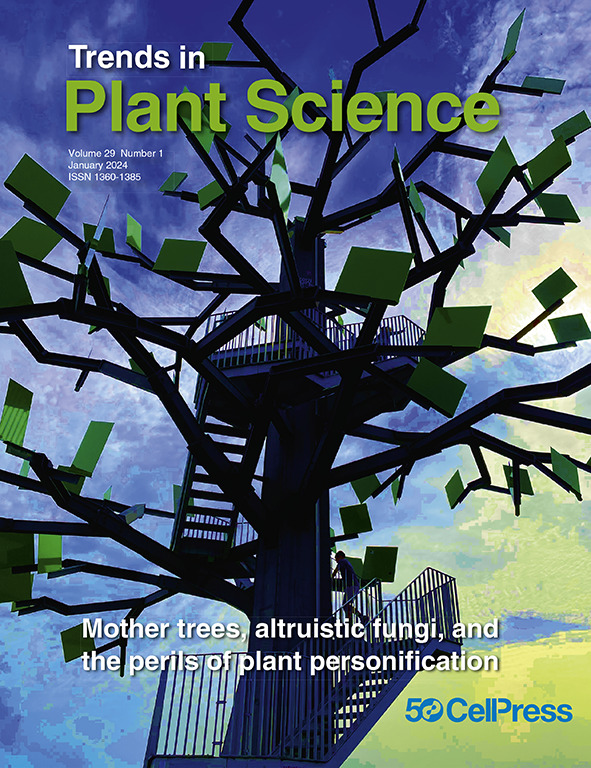利用微生物竞争促进植物健康。
IF 17.3
1区 生物学
Q1 PLANT SCIENCES
Trends in Plant Science
Pub Date : 2024-10-01
Epub Date: 2024-05-16
DOI:10.1016/j.tplants.2024.05.003
引用次数: 0
摘要
正如 Spragge 等人最近发表的一篇文章所强调的那样,宿主相关微生物群可以通过一种称为 "营养阻断 "的机制促进对病原体的定植抵抗力。在此,我们将讨论如何在根瘤微生物群中利用这一原理促进植物健康的未来途径。本文章由计算机程序翻译,如有差异,请以英文原文为准。
Exploiting microbial competition to promote plant health.
The host-associated microbiota can promote colonization resistance against pathogens via a mechanism termed 'nutrient blocking', as highlighted in a recent article by Spragge et al. This implies that greater metabolic overlap between commensal taxa and pathogens leads to disease suppression. Here, we discuss future avenues for how this principle can be exploited in the rhizosphere microbiota to promote plant health.
求助全文
通过发布文献求助,成功后即可免费获取论文全文。
去求助
来源期刊

Trends in Plant Science
生物-植物科学
CiteScore
31.30
自引率
2.00%
发文量
196
审稿时长
6-12 weeks
期刊介绍:
Trends in Plant Science is the primary monthly review journal in plant science, encompassing a wide range from molecular biology to ecology. It offers concise and accessible reviews and opinions on fundamental plant science topics, providing quick insights into current thinking and developments in plant biology. Geared towards researchers, students, and teachers, the articles are authoritative, authored by both established leaders in the field and emerging talents.
 求助内容:
求助内容: 应助结果提醒方式:
应助结果提醒方式:


